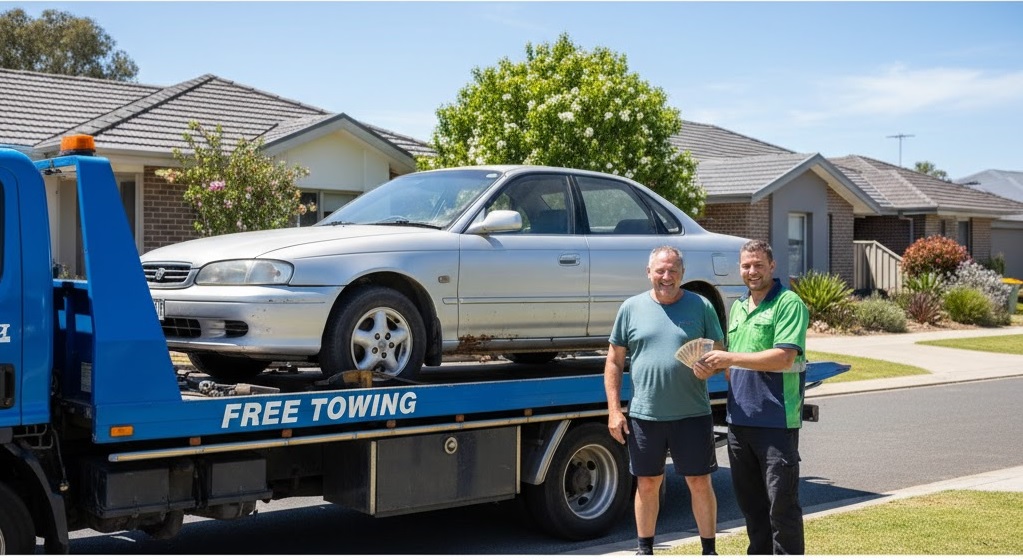
Towing a vehicle can be a daunting task, especially if you’re not familiar with the proper safety measures. Whether you’re towing a trailer, boat, or another vehicle, it’s essential to take the necessary precautions to ensure your safety and the safety of others on the road. In this guide, we’ll take a closer look at eight safety measures to take when towing a vehicle.
1. Check Your Vehicle’s Towing Capacity
Before towing a vehicle, it’s essential to check your vehicle’s towing capacity. Your vehicle’s towing capacity is the maximum weight that it can safely tow. Exceeding your vehicle’s towing capacity can cause damage to your vehicle and compromise your safety on the road.
2. Inspect Your Equipment
Inspect your towing equipment, including the hitch, chains, and safety cables, to ensure that they are in good condition and properly attached. Check for any signs of wear and tear, and replace any damaged equipment before towing.
3. Secure Your Load
Ensure that your load is secure and properly balanced before towing. Use straps, bungee cords, or other tie-downs to secure your load and prevent it from shifting during transport.
4. Check Your Brakes
Check your brakes before towing to ensure that they are functioning properly. Your vehicle’s brakes will be under increased strain when towing, so it’s essential to ensure that they are in good condition.
5. Use Proper Lighting
Ensure that your trailer or towed vehicle is equipped with proper lighting, including brake lights, turn signals, and hazard lights. Proper lighting is essential for communicating your intentions to other drivers on the road.
6. Check Your Tires
Check your tires, including your vehicle’s and the trailer’s or towed vehicle’s tires, before towing. Ensure that they are properly inflated and have sufficient tread depth.
7. Drive Defensively
When towing a vehicle, it’s essential to drive defensively and be aware of your surroundings. Leave plenty of space between your vehicle and other vehicles on the road, and avoid sudden maneuvers or hard braking.
8. Know Your Route
Plan your route ahead of time and be aware of any potential hazards, such as low bridges or narrow roads. Avoid steep inclines or declines, and take breaks as needed to avoid driver fatigue.
Safety Measures to Take When Towing a Vehicle
Towing a vehicle can be a dangerous task, so it is important to take the necessary safety precautions. Here are some tips for towing a vehicle safely:
- Use the correct equipment. Make sure that you are using the correct size tow strap or chain for the weight of the vehicle you are towing. You should also use a tow dolly or trailer if the vehicle is too heavy to be towed by a tow strap or chain.
- Secure the vehicle properly. Make sure that the vehicle is securely attached to the tow vehicle. Use a variety of straps or chains to secure the vehicle, and make sure that the straps or chains are properly tightened.
- Drive slowly and carefully. When towing a vehicle, you should drive slowly and carefully. Be aware of your surroundings and be prepared to stop suddenly.
- Use your turn signals. When you are towing a vehicle, you should use your turn signals to let other drivers know of your intentions.
- Be aware of the laws in your area. The laws regarding towing vehicles vary from state to state. Make sure that you are familiar with the laws in your area before you tow a vehicle.
- Check the towed vehicle. Before you start towing, make sure the towed vehicle is in good condition. Check the tires, brakes, and lights to make sure they are working properly.
- Load the towed vehicle properly. The weight of the towed vehicle should be evenly distributed. The heavier items should be placed in the front of the towed vehicle, and the lighter items should be placed in the back.
- Secure the towed vehicle. Use safety chains to secure the towed vehicle to the tow bar. The safety chains should be attached to the tow bar at both ends of the towed vehicle.
- Signal your intentions. When you are towing a vehicle, be sure to signal your intentions to other drivers. Use your turn signals and brake lights to let other drivers know what you are doing.
By following these safety tips, you can help to ensure that you tow a vehicle safely.
Here are some additional tips for towing a vehicle:
- Check the weather forecast before you tow. If there is bad weather in the forecast, it is best to postpone your trip. Bad weather can make towing more difficult and dangerous.
- Let someone know where you are going and when you expect to arrive. This is especially important if you are towing a vehicle long distances.
- Bring a first-aid kit and a cell phone with you in case of an emergency.
- Be prepared for the unexpected. Towing a vehicle can be unpredictable, so it is important to be prepared for anything.
Towing a vehicle can be a safe and efficient way to transport your belongings or other vehicles. By following these safety measures, you can ensure your safety and the safety of others on the road while towing. Remember to always check your vehicle’s towing capacity, inspect your equipment, secure your load, check your brakes and tires, use proper lighting, drive defensively, and know your route.


